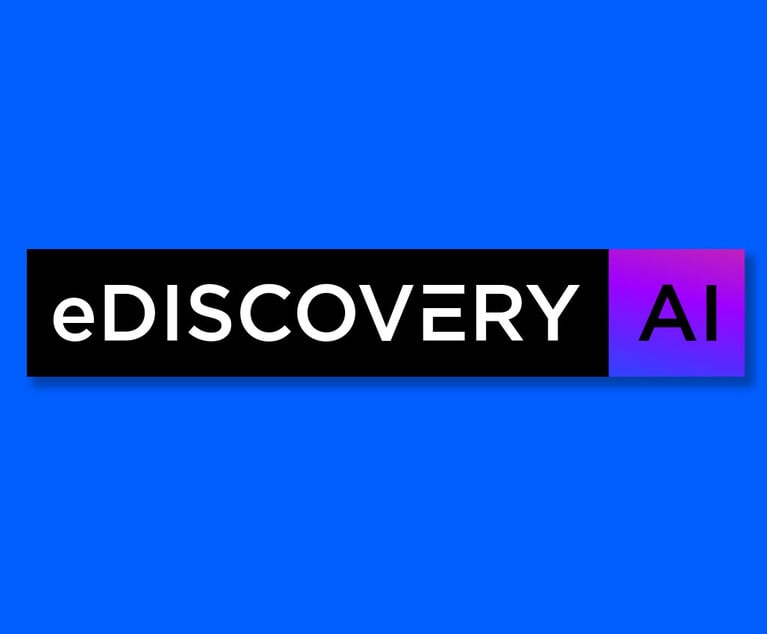Features

From Reactive to Proactive: Navigating AI, Privacy and Security Compliance Across APAC’s Expanding Regulatory Landscape
APAC is awash with recent changes in AI, privacy and cybersecurity regulations. Part one of this article examines the specifics of those changes and the paradigm shift they are precipitating.
Features

Gen AI and TAR: How Seemingly Competitive Technologies Are Complementary Tools
Over the last decade, technology-assisted review (TAR) has become a preferred choice in the e-discovery toolkit. Now, as generative AI gains traction, legal teams face a new challenge: creating a technology stack that offers the best balance of efficiency, cost and usability.
Features

How to Earn AI-Driven PR: Raising Your Firm’s Profile in a World of Generative Search Engines
In today’s world, artificial intelligence is reshaping how journalists, businesses and, most importantly, your clients discover and trust brands. If your content and expertise aren’t showing up in AI-generated responses, you may be invisible in the very moments that matter most.
Features

The Shortcomings of the Copyright Office’s Guidance for AI-Assisted Works
AI-assisted artwork poses a simple question: When can an artist using AI tools copyright their work? Early this year, the Copyright Office addressed this issue and rejected the proposition that only prompting an AI model can create a copyrightable work. But their analysis missed that “randomness” for a computer means something entirely different than we generally think, ultimately underselling the amount of control someone can have over the model’s output.
Features

Tensions Building Over AI Billing
AI may be accelerating legal work, but it’s also escalating tensions over how that work gets billed — and who benefits from the time saved.
Features

Stephen Thaler Is At It Again — Asks Supreme Court to Extend Copyright Protection to AI Works
A computer scientist is asking the U.S. Supreme Court to extend copyright protection to works created entirely by artificial intelligence in one of the first cases to reach the justices about the revolutionary technology.
Features

Tracking Technology Trends and Risk Mitigation Techniques
U.S. companies face a massive wave of wiretapping law class action lawsuits and regulatory enforcement actions over online “tracking technologies.” With this backdrop, the article below identifies some trends and new directions concerning tracking technology legal exposure and highlights some potential solutions for mitigating legal impact.
Features

Pioneering AI In Law Firm Cybersecurity: Balancing Innovation With Risk of Using GANs and Other Novel Solutions
The cybersecurity arms race shows no signs of slowing. Attackers continue developing more sophisticated techniques, forcing defenders to evolve accordingly. Generative adversarial networks (GANs) represent one of the most promising developments in the defensive arsenal, but only when deployed wisely. Organizations should evaluate their risk appetite and technical capabilities carefully.
Features

Anatomy of a Prompt: Providing Real Training for Using AI In Law Firms
With generative AI, research time has collapsed and review time has expanded. The model can draft in minutes, which means you now spend more time asking whether the draft is accurate, defensible, and on brand. Prompting skill is not about magic words. It is about shaping the first draft so the review phase is shorter and you are not fixing preventable mistakes. A good prompt removes ambiguity, narrows scope, and sets expectations. The better the prompt, the less the scramble at the end.
Features

Anthropic’s Settlement With Authors May Be Potential Blueprint for Resolving AI Infringement Claims
A federal judge in the Northern District of California granted preliminary approval to a $1.5 billion settlement between Anthropic and a class of book authors who alleged that the artificial intelligence company used their copyrighted works to train its chatbot Claude without their consent. The settlement is the largest copyright settlement of all time, covering 482,460 works and paying authors slightly more than $3,000 per work infringed.
Need Help?
- Prefer an IP authenticated environment? Request a transition or call 800-756-8993.
- Need other assistance? email Customer Service or call 1-877-256-2472.
MOST POPULAR STORIES
- Strategy vs. Tactics: Two Sides of a Difficult CoinWith each successive large-scale cyber attack, it is slowly becoming clear that ransomware attacks are targeting the critical infrastructure of the most powerful country on the planet. Understanding the strategy, and tactics of our opponents, as well as the strategy and the tactics we implement as a response are vital to victory.Read More ›
- The DOJ's New Parameters for Evaluating Corporate Compliance ProgramsThe parameters set forth in the DOJ's memorandum have implications not only for the government's evaluation of compliance programs in the context of criminal charging decisions, but also for how defense counsel structure their conference-room advocacy seeking declinations or lesser sanctions in both criminal and civil investigations.Read More ›
- The DOJ's Corporate Enforcement Policy: One Year LaterThe DOJ's Criminal Division issued three declinations since the issuance of the revised CEP a year ago. Review of these cases gives insight into DOJ's implementation of the new policy in practice.Read More ›
- Use of Deferred Prosecution Agreements In White Collar InvestigationsThis article discusses the practical and policy reasons for the use of DPAs and NPAs in white-collar criminal investigations, and considers the NDAA's new reporting provision and its relationship with other efforts to enhance transparency in DOJ decision-making.Read More ›
- Mixed Ruling in Jefferson Starship Band Name SuitWhat's in a rock band's name? Plenty, if you are talking about Jefferson Starship, which goes back more than 40 years, has had more than 30 members and was born from the 1960s psychedelic rock band Jefferson Airplane.Read More ›
